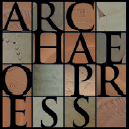Creating the Human Past
An Epistemology of Pleistocene Archaeology
By Robert G. Bednarik

Paperback
£14.95
Includes PDF

PDF eBook
(personal use)
£16.00

PDF eBook
(institutional use)
£14.95
Add to basket
 Add to wishlist
Add to wishlist
This book examines systematically both the theoretical and practical issues that have characterized the discipline over the past two centuries. Some of the historically most consequential mistakes in archaeology are dissected and explained, together with the effects of the related controversies.
READ MORE
This book examines systematically both the theoretical and practical issues that have characterized the discipline over the past two centuries. Some of the historically most consequential mistakes in archaeology are dissected and explained, together with the effects of the related controversies. The theoretical basis of the discipline is deliberated in some detail, leading to the diagnosis that there are in fact numerous archaeologies, all with different notions of commensurability, ideologies, and purposes. Their various perspectives of what archaeology is and does are considered and the range of views of the human past is illuminated in this book. How humans became what they are today is of profound importance to understanding ourselves, both as a species and individually. Our psychology, cognition, diseases, intellect, communication forms, physiology, predispositions, ideologies, culture, genetics, behavior, and, perhaps most importantly, our reality constructs are all the result of our evolutionary history. Therefore the models archaeology—especially Pleistocene archaeology—creates of our past are not just narratives of what happened in human history; they are fundamental to every aspect of our existence.



 Add to wishlist
Add to wishlist
